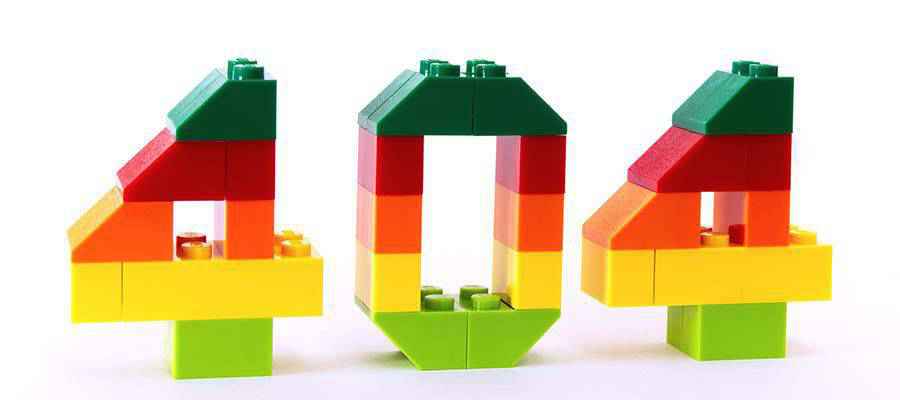The web is full of advice for freelance web designers. Certainly, I’ve offered up my share. But, while it’s often well-meaning, there is an unintended consequence. It can lead us to believe that we need to achieve perfection in order to succeed.
But no matter how much great advice we give or receive, none of us are perfect. We all make mistakes. Sometimes, we run a bit low on motivation. It’s all part of the human experience.
Today, we’ll explore some of the more common perceived sins that designers commit. They range from business-related bumbles to technical faux pas. And, while they’re not something worth celebrating, they are acts that we can (and should) forgive ourselves for.
Let’s take a look:
Not Following up on Leads
Have you ever received a message from a prospective new client and just never got around to replying? It almost feels like breaking some sort of international salesperson’s code of honor.
I admit to having done this more than a few times over the years. The question I often ask myself is, “Why?”
There are a few reasons why we might let these opportunities slip into the wind. It could be that we’re simply too busy and preoccupied with other projects. Some days, it can feel like a new client is indeed the last thing you need to deal with – as counterintuitive as that may sound.
But there is also the possibility that a lead seems either completely uninspiring or raises some other red flag. The person on the other end could come off as being difficult, or the project might appear to be of no real benefit.
Of course, this doesn’t mean we should ignore every opportunity that comes our way – that would be foolish. But don’t be too hard on yourself for allowing a lead to go unanswered. It’s not the end of the world.

Ignoring the Hot New Trend
In some respects, it’s reasonable that designers jump onto certain trends. After all, no one wants to look as if they’ve fallen behind the times. Why, even some “retro” looks are done with a wink and a nod of irony.
Some styles, like minimalism, can become full-blown design principles that withstand the test of time. But most often they end up leaving just as fast as they arrived. This makes for tough decisions when working on new projects.
On one hand, you might feel obligated to create a website that’s “with it” and reflects the current times. Yet, you also don’t want it to look like last year’s fad as the site ages.
It feels like there’s a level of guilt associated with ignoring the latest trends. As in, maybe you’ve lost your creative mojo or are not serving your clients as well as you should be.
But eschewing trends in favor of more time-tested techniques can be a good thing. Because you aren’t latching onto buzzwords or worrying about how it will look in your portfolio, you’re actually performing a great service.
Odds are, your designs will stay relevant longer. That’s a benefit to both you and your clients.

Parting Ways with a Client
Booking a new client means the start of a new relationship. It’s one that you hope will be prosperous and mutually beneficial.
However, working relationships are still human relationships. That means that we are going to face the same struggles with clients that we’d face with any other person. In that same way, sometimes things just don’t work out.
And, while it’s true that our job is to serve our clients, they’re not without responsibilities of their own. Clients who aren’t truthful, don’t pay their bills or are otherwise disrespectful should be accountable. Just as we designers are responsible for holding up our end of the bargain, clients should be held to the same standard.
Still, firing a client can seem like an extreme measure. Yet, it’s better than staying in a bad relationship.
Because, while serving clients is part of what we do, that doesn’t mean we should do so at all costs. Therefore, saying goodbye is a sometimes-necessary act.

Breaking a Website and Other Assorted Mishaps
As previously mentioned, there is pressure on web designers to be perfect. But anyone who’s ever built a website knows that isn’t the reality.
That’s because, when working with code and a host of third-party tools, projects can become complicated in a hurry. And the more complex the task, the more likely we are to make mistakes.
Even so, it’s easy to take these mishaps to heart. A single second of downtime (especially one where your client notices) can feel embarrassing. It may make you question yourself and your ability to keep things running smoothly.
However, making and correcting mistakes are part of the job description. Of course, that’s no excuse for being sloppy. But even the best-prepared developer can bring down an entire server with a single misplaced character.
So, the next time your website breaks, don’t be too hard on yourself. Instead, use it as a learning opportunity. Chances are you’ll know how to better handle the situation when it arises again in the future.

Putting Yourself First
The internet does not take a day off. Hardware and software failures don’t wait until you’re in your comfy office chair to wreak havoc. And clients aren’t always the most understanding of people.
Put all of this together and you might start to feel like a machine. One that’s programmed to switch itself into work mode as soon as an email arrives.
This is why so many of us tell ourselves that there simply isn’t time for a vacation. Or that we’ll have to miss our child’s school event because, well, duty calls.
Then, when we actually do take a day off, we feel guilty. Because, heaven forbid that we’re not around if someone, anyone, has a question. And if something were to break…
One of the hardest lessons I’ve learned, and continue to struggle with, is that nobody is going to tell you to take a day off. And, even if one client did, you may have dozens more that wouldn’t. So, it’s up to us to put ourselves and our families first.
Getting away from your office is not a sin. And anyone who makes you feel that it is probably isn’t worth working with.

Stop Chasing Perfect, Start Living
We all want to do the very best that we can. We want to make money and keep our clients happy. We want to be respected within our industry.
The secret is that each and every one of these things is possible. Yet, none of them require us to be perfect. As simple as that sounds, it can be easy to forget.
Any of the situations above can lead us to doubt ourselves. But that’s a natural reaction. It’s how we respond that really counts.
If you’re looking to grow as both a web designer and a person, forgive yourself. It may just be the gateway to a whole different outlook.
Related Topics
Top